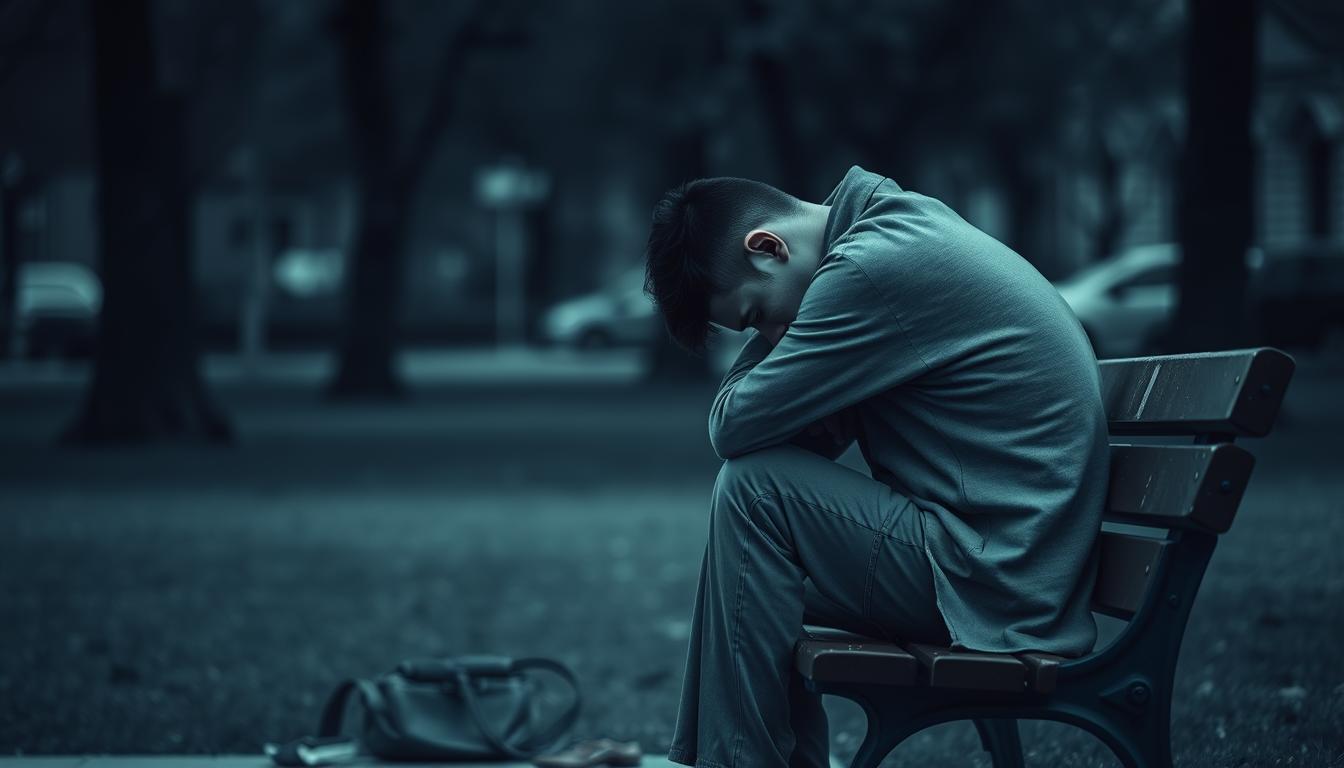
Looking after your mental health is key to feeling good. Therapy can be a big help when things get tough. Knowing when to see a therapist is a big step towards getting the support you need.
If you often feel sad, helpless, or find it hard to control your emotions, it may be a sign to talk to a therapist. These feelings could mean you need some professional help.
Therapy offers a safe place to talk about your mental health and learn how to cope. It can help with things like intrusive thoughts, anxiety, or even substance abuse. If you’re dealing with relationship issues or big life changes, like grief or chronic illness, therapy can be a big help too.
Remember, seeking therapy doesn’t mean you’re weak. It shows you’re taking care of your mental health. There are many types of therapy out there, so you can find one that fits you. If you think you need help, don’t wait. Reach out and book a session with a mental health expert like Shield Bearer Counseling. Therapy can give you the tools and support you need to live a better life.
Key Takeaways
- Recognize signs that indicate it may be time to consider therapy, such as persistent sadness or difficulty managing emotions
- Seek professional help from a licensed therapist to address mental health concerns and develop coping strategies
- Therapy provides a safe space to work through challenges like anxiety, substance abuse, relationship struggles, and major life transitions
- Many different types of therapy are available to find the right approach for your needs
- Don’t hesitate to reach out and schedule an appointment with a mental health professional if you feel you need help

Understanding the Benefits From Therapy
There are many benefits of therapy. Therapy helps people deal with life’s tough times and boosts their mental health. If you see yourself in the 10 signs that therapy might help, getting help is a big step towards feeling better.
Therapy, sometimes called talk therapy, offers a safe space to discuss about your thoughts, feelings, and actions. With a trained therapist, you can learn a lot about yourself. You’ll also find ways to handle issues like depression, anxiety, trauma, and problems in relationships.
Improving Overall Mental Well-being
Therapy is great for improving your mental health. It uses methods like cognitive-behavioral therapy and interpersonal therapy. These help you change negative thoughts, control your emotions, and grow stronger when faced with hard times.
Therapy can help you:
- Develop a more positive self-image
- Improve communication skills
- Strengthen relationships
- Increase self-awareness and personal growth
Learn more about The Benefits of One-On-One Counseling.
Developing Coping Strategies for Life’s Challenges
Life is full of ups and downs, and therapy gives you the tools to handle them. Whether it’s a mental health condition or just feeling stressed, a mental health treatment counselor can teach you how to cope.
Some common coping strategies learned in therapy include:
- Mindfulness and relaxation techniques
- Problem-solving skills
- Assertiveness training
- Boundary setting
For those who’ve faced trauma, trauma-focused cognitive behavioral therapy is especially helpful. It aids in healing from those experiences.
By choosing therapy, you’re taking a big step towards better mental health and happiness. With a skilled therapist’s help, you’ll learn how to face life’s challenges and live a more meaningful life.

Recognizing Emotional Distress
Emotional distress shows up in many ways. It’s key to know the signs that might mean you need therapy. Feeling sad, empty, or hopeless all the time can be a sign of depression. Therapy can provide help with these feelings.
Struggling with anger or feeling overwhelmed by emotions is another sign. These feelings can really affect your life. If you’re experiencing these, it might be time to get help.
Did You Know: We offer Online Therapy and In-Person Therapy?
Persistent Feelings of Sadness or Helplessness
Feeling sad, empty, or hopeless for a long time can be depression. It’s more than just feeling down sometimes. It can change how you think, act, and feel physically. If you’re feeling these things, therapy can help.
- Loss of interest in activities you once enjoyed
- Changes in sleep patterns or appetite
- Difficulty concentrating or making decisions
- Feelings of worthlessness or excessive guilt
- Thoughts of self-harm or suicide
Difficulty Managing Anger or Other Intense Emotions
Struggling to control anger or having frequent outbursts can be a sign. Anger is normal, but too much can hurt relationships. Feeling really sad or anxious can also be hard to handle alone. A therapist can teach you how to manage these feelings better.
Experiencing Intrusive Thoughts or Anxiety
Intrusive thoughts are scary and hard to stop. They might be about fears, past traumas, or obsessive thoughts. If these thoughts are causing you a lot of anxiety, therapy can help. It can also help with constant worry or feeling really anxious.
Unhealthy Coping Mechanisms
When life gets tough, we might turn to unhealthy ways to cope. These behaviors can be signs you should see a therapist or counselor. It’s important to know when it may be time to seek therapy to break free from harmful patterns.
Substance Abuse and Addiction
Substance abuse and addiction can harm your health, relationships, and life quality. If you use alcohol, drugs, or other substances to hide from feelings, it’s a sign you need therapy.
A therapist can help you find why you abuse substances and teach you to cope better. They offer support and guidance in recovery, helping you live a substance-free life.
Engaging in Self-Destructive Behaviors
Self-destructive actions, like self-harm or disordered eating, show you’re struggling. These behaviors can hurt your health and well-being. It’s crucial to get professional help to tackle the underlying issues.
In therapy, you can understand why you act this way and learn to manage your feelings better. Your therapist will help you develop coping strategies and improve your self-esteem for a more positive life.
Remember, asking for help is brave, not weak. If you see unhealthy coping in yourself, it may be time for therapy. By seeking support, you start healing and moving towards a happier, healthier life.
Relationship and Family Struggles
Constant arguing with your partner or family can be a sign you need therapy. These struggles can make you feel drained and disconnected from loved ones. It’s a heavy emotional burden.
Frequent fights and communication problems often hide deeper issues. Couples therapy can help improve how you talk and work through conflicts. A therapist can teach you and your partner to communicate better and strengthen your bond.
Family therapy is also helpful for dealing with ongoing problems or big changes in the family. Families might seek therapy for:
- Intergenerational trauma
- Unhealthy family dynamics
- Adjusting to big life changes (like divorce or blending families)
- Managing chronic health issues or disabilities in the family
Considering Couples Therapy or Family Therapy
If you’re facing these situations, it might be time for therapy:
| Situation | Couples Therapy | Family Therapy |
| Frequent arguments | ✓ | ✓ |
| Poor communication | ✓ | ✓ |
| Lack of intimacy | ✓ | |
| Parenting conflicts | ✓ | |
| Sibling rivalry | ✓ |
Therapy can help you understand and heal from emotional wounds. It promotes healthier interactions in your relationships. With a professional’s help, you can build stronger, more fulfilling bonds with your loved ones.
Life Transitions and Grief
We all go through tough times and feel deep sadness. These moments can make us feel lost and need help. Therapy offers a safe place to deal with these feelings and heal.
Coping with Major Life Changes
Big changes, like a new job or moving, can be really hard. You might feel anxious, unsure, and out of place. Therapy can help you understand your feelings, find ways to cope, and see things more clearly.
A therapist can help you look at things differently, set achievable goals, and grow stronger. They support you as you start a new chapter in your life.
Dealing with the Loss of a Loved One
It’s very hard to lose someone close to you. Grief can make you feel sad, angry, numb, or unsure. If your grief feels too much, it might be time to talk to a therapist.
A therapist listens with kindness, understands your feelings, and helps you through your grief. They help you find ways to remember your loved one while also moving forward.
Adjusting to Chronic Health Conditions
Getting a chronic illness diagnosis can change your life. You might feel scared, upset, or sad. Therapy can offer support as you adjust to this new reality.
A therapist can teach you how to cope, talk to your doctors, and keep a sense of purpose. They also help with how your illness affects your relationships and daily life.
Remember, asking for therapy when you’re going through tough times shows you’re strong. It’s a way to take care of your mental health and grow stronger, even when life is hard.
Conclusion – Signs You Need Therapy For Mental Health
If you or someone you know is feeling stuck, struggling with unhealthy habits, or facing tough times, therapy can help. Recognizing these signs and seeking help is brave. It shows you care about your mental health.
Therapy offers a safe place to talk about your feelings and experiences. It helps you understand yourself better and find ways to overcome challenges.
Finding a therapist is important. Look for someone who knows what you need and who you feel comfortable with. A good therapist helps you grow and change in a positive way.
Therapy can change your life for the better. It helps you understand yourself, become stronger, and build better relationships. By choosing therapy, you’re taking a big step towards a happier future.
FAQ – Signs You May Need To Go To Therapy Services
What are some common signs that indicate a need for therapy?
Signs you might need therapy include feeling sad or helpless a lot. You might struggle with anger or have thoughts that won’t go away. Anxiety, substance abuse, and self-destructive actions are also red flags.
Struggling in relationships or finding it hard to deal with big changes or loss are other signs. These can all point to the need for professional help.
How can therapy help improve my overall mental well-being?
Therapy helps you understand your thoughts, feelings, and actions better. This leads to greater self-awareness and personal growth. It offers a safe space to tackle mental health issues and learn coping strategies.
It also helps build your resilience. This means you can handle life’s ups and downs better.
What should I do if I’m experiencing persistent feelings of sadness or helplessness?
If you feel sad, empty, or hopeless a lot, it might be depression. Therapy can help you deal with these feelings. It helps you find ways to manage your emotions.
How can therapy assist with unhealthy coping mechanisms like substance abuse or self-destructive behaviors?
Therapy offers a safe place to look at why you might be using unhealthy coping methods. You can learn better ways to handle stress and emotions. A therapist can teach you how to manage triggers.
When should I consider couples therapy or family therapy?
If you and your partner or family members argue a lot, it’s time to think about therapy. It can help improve communication and resolve conflicts. It’s a way to build stronger relationships.
How can therapy support me during major life transitions or grief?
Therapy is a supportive space for dealing with big life changes. This includes career changes, divorce, or moving. It helps you cope with the sadness of losing someone close.
It offers guidance and strategies for getting through the grieving process.
What should I look for to find the right therapist?
Look for a therapist’s qualifications, expertise, and approach. It’s key to find someone you feel comfortable with. They should match your needs and goals.
Many therapists offer initial consultations. This helps you see if they’re right for you.